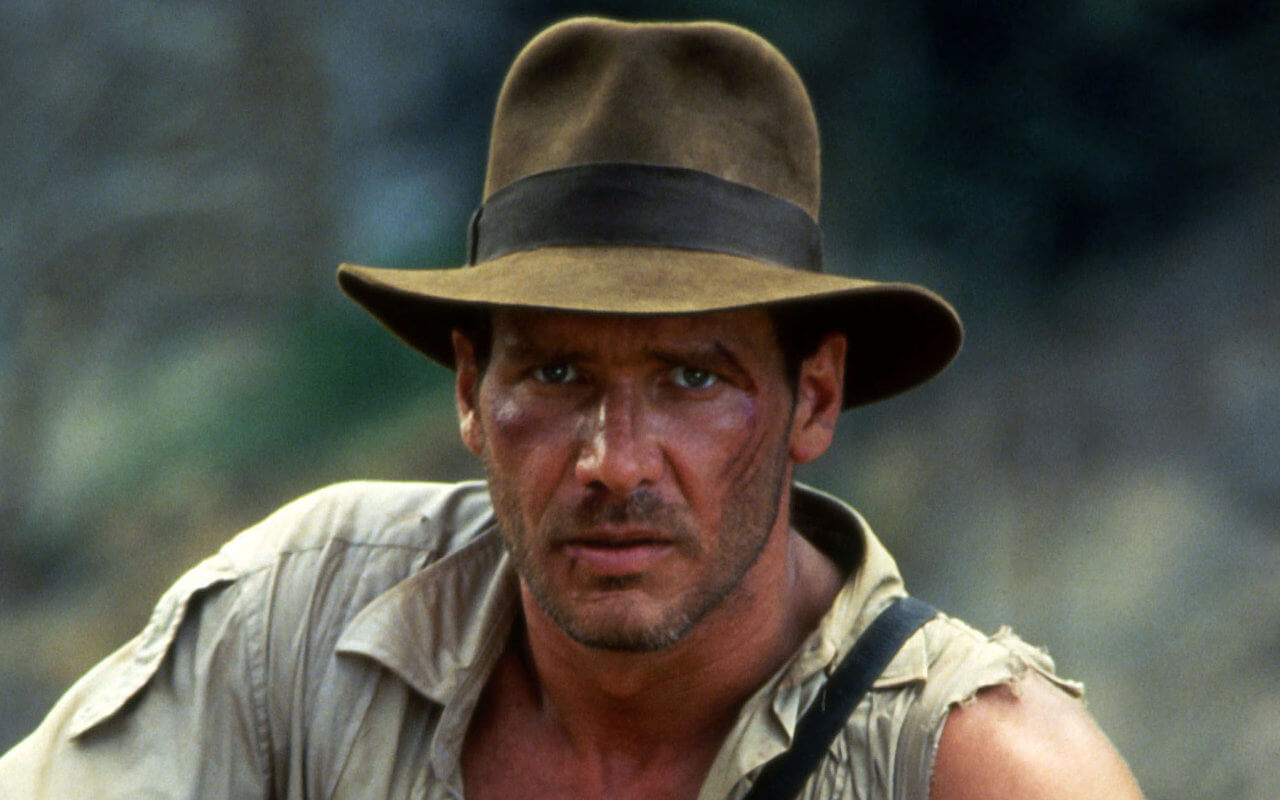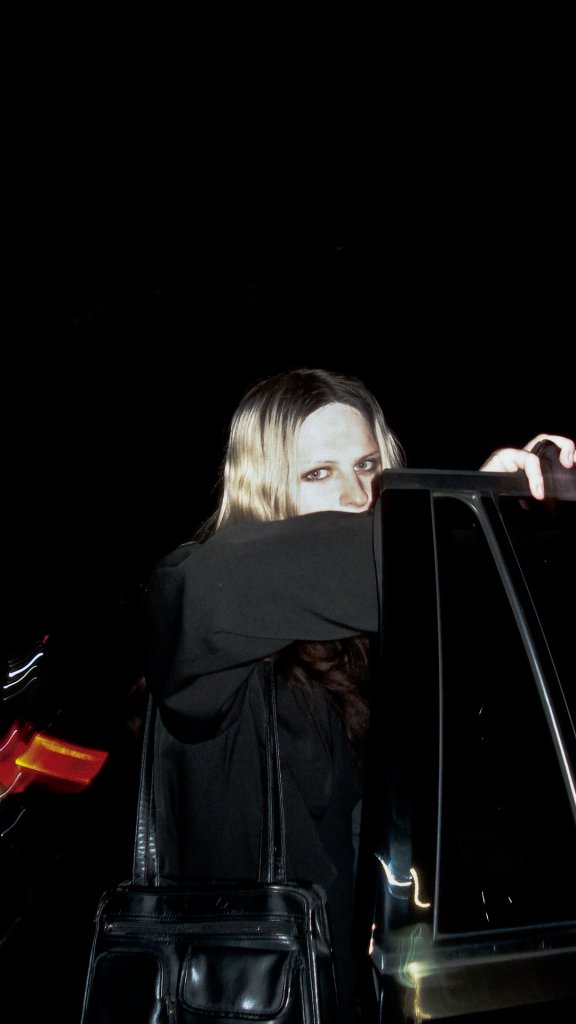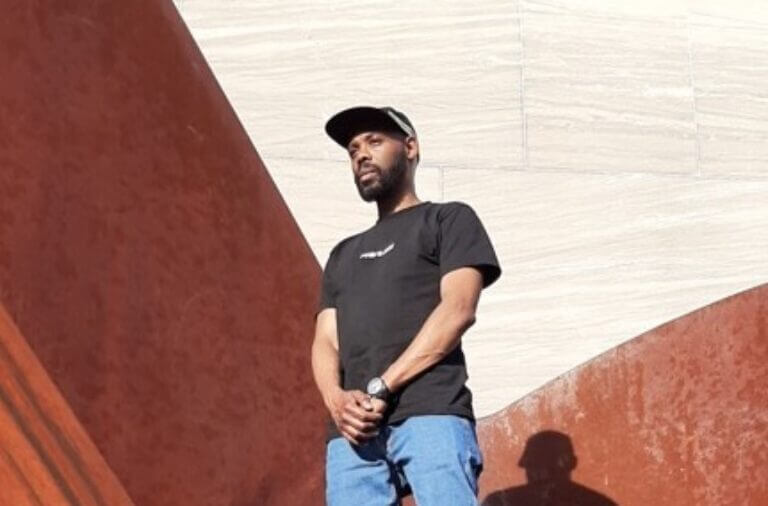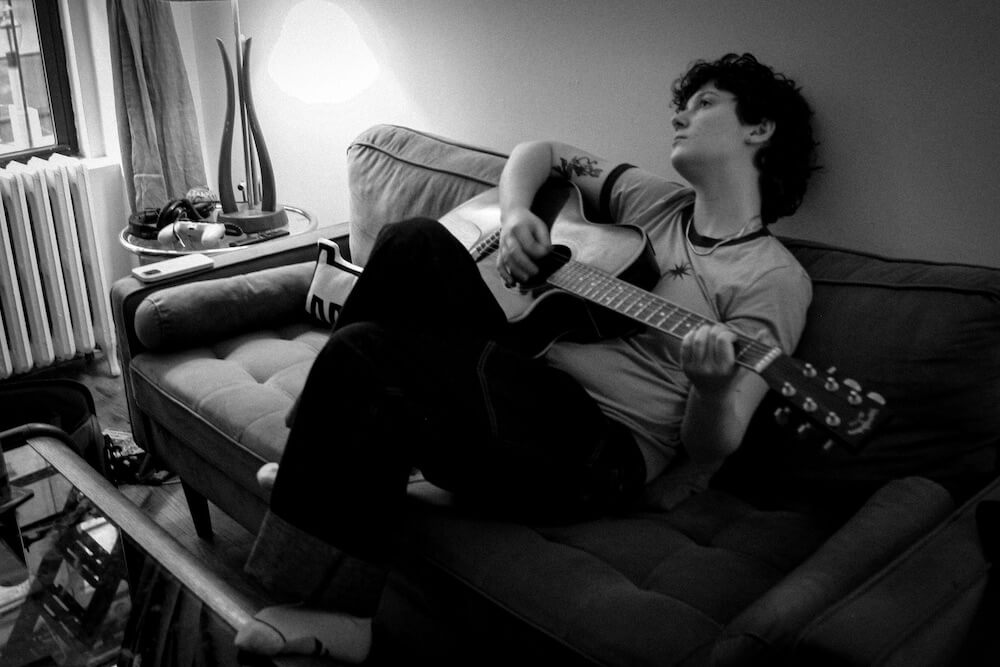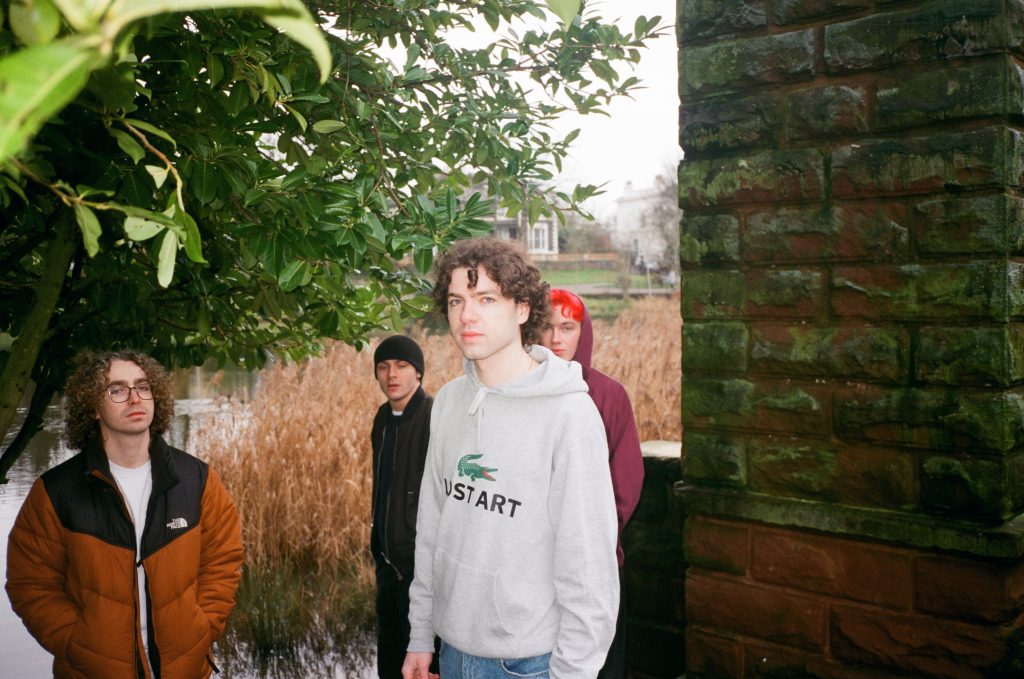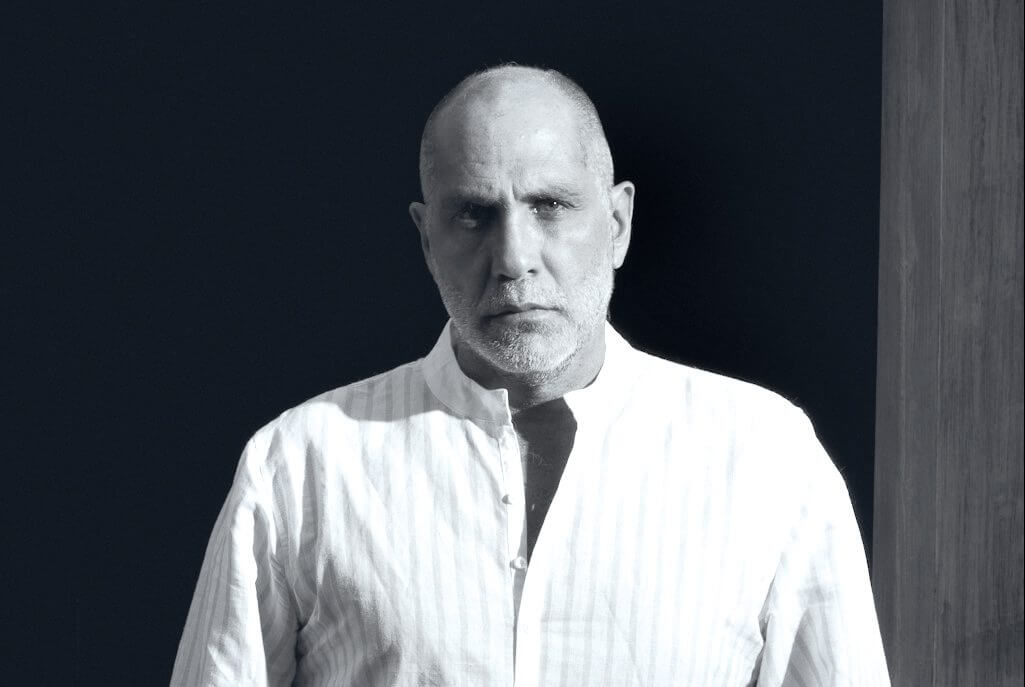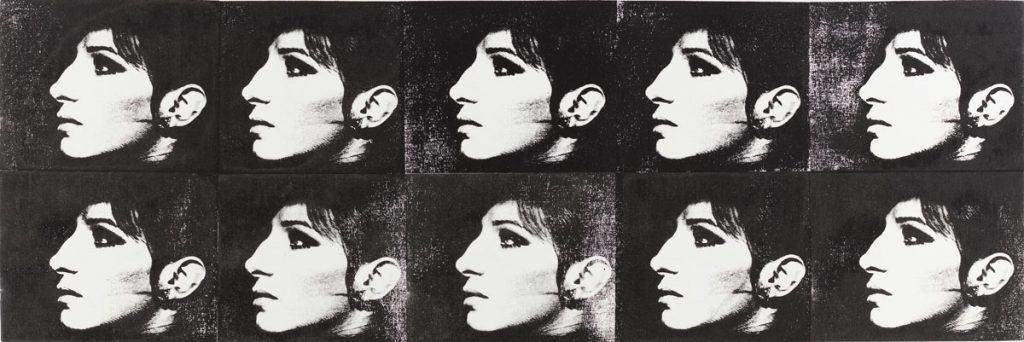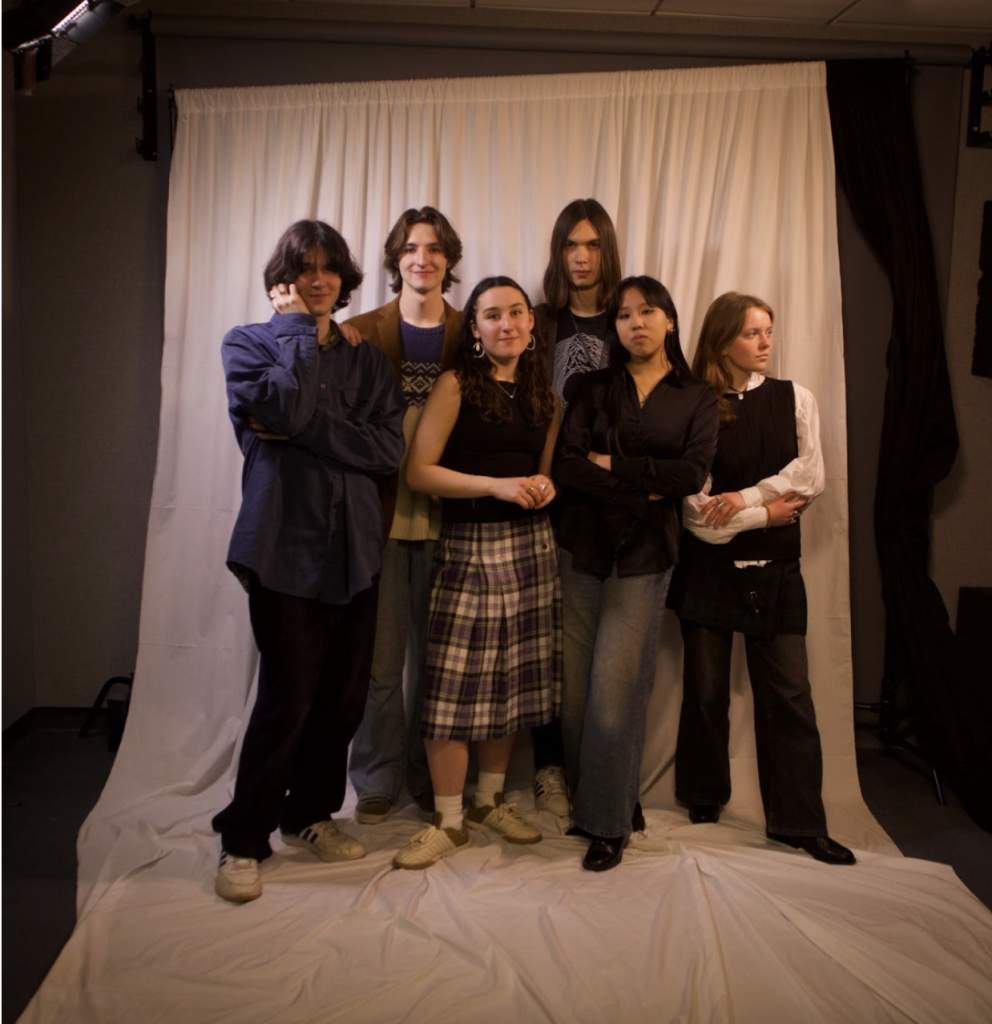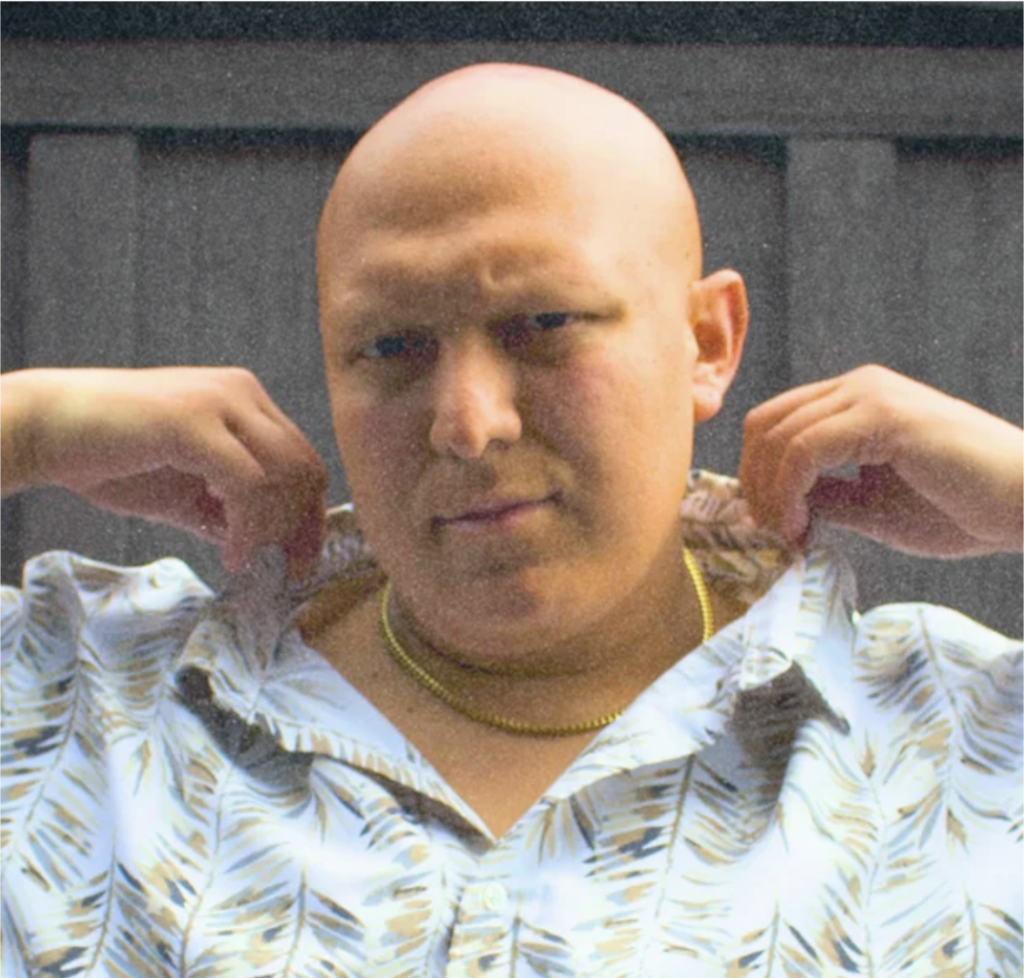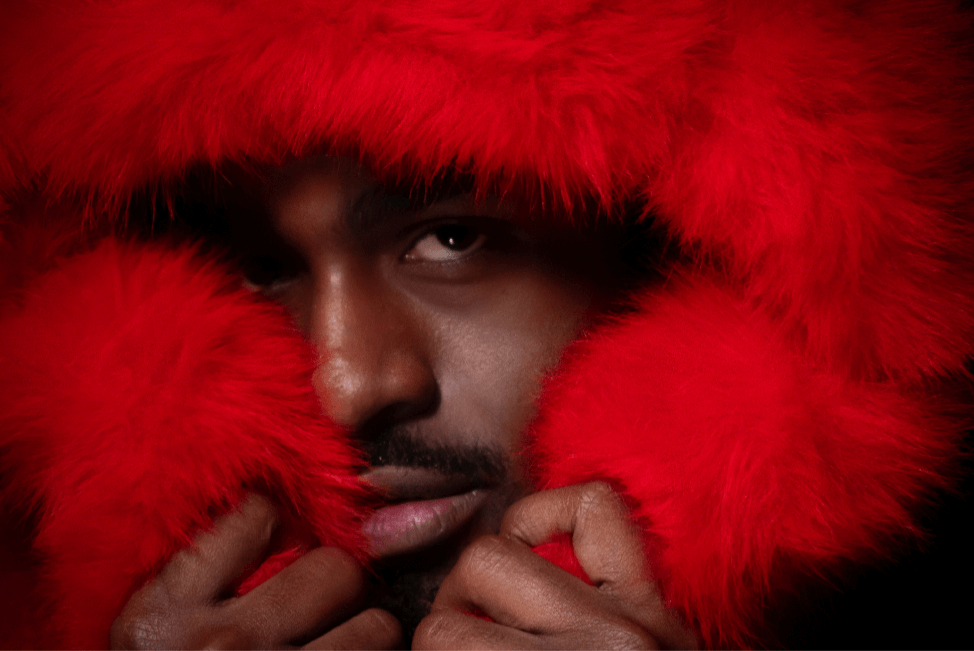Haleek Maul on Errol: the Album and the Man Behind It
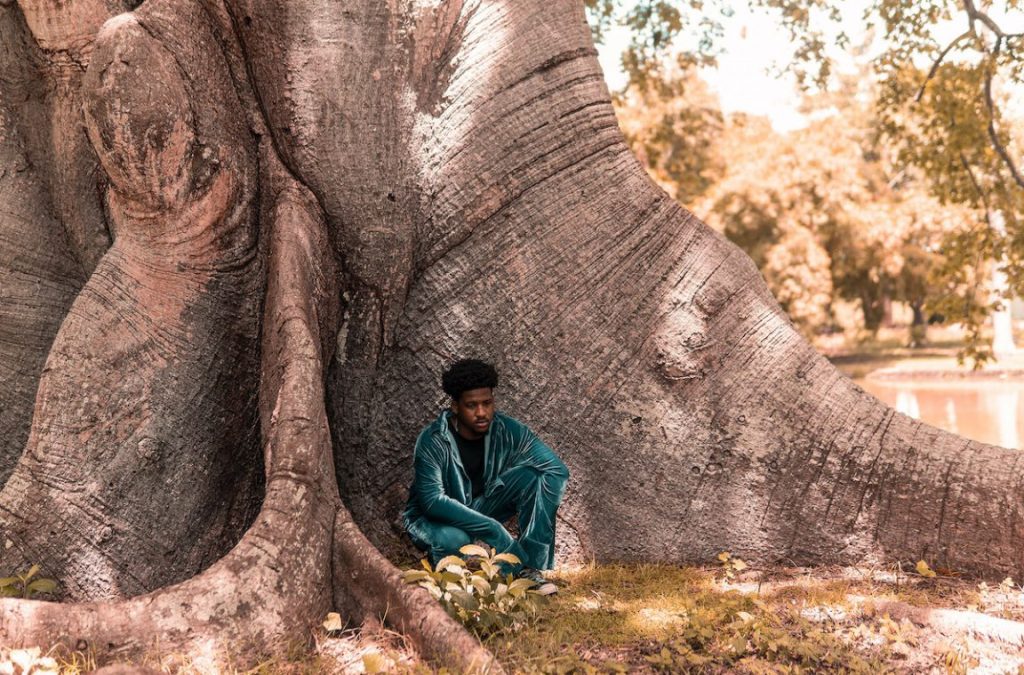
Barbados has blessed us with a lot. Flying fish, Rihanna, beautiful beaches, and (on my personal list), Haleek Maul. Born in Brooklyn but raised in Barbados, Haleek is introducing the world to his trap-infused sound that has a Barbados twist and twang. His album Errol dropped February 28, 2020, and it provides us with the kind of classic rap we can easily bop our heads to. Wearing the hat as a rapper and producer, Haleek isn’t afraid to get experimental with trap beats–and the same goes for his rhymes. He spits lyrics that are marinated in references you may not catch initially. From biblical to historical to Shakespearean references, he digs deep to show off his intellect–but more importantly, to unveil the layers of himself.
Errol is the first project from a music trilogy Haleek is working on. FRONTRUNNER sat down with him to discuss what we can expect from his upcoming projects, how he’s musically evolved over the years, and what he learned from his grandfather, the album’s namesake.
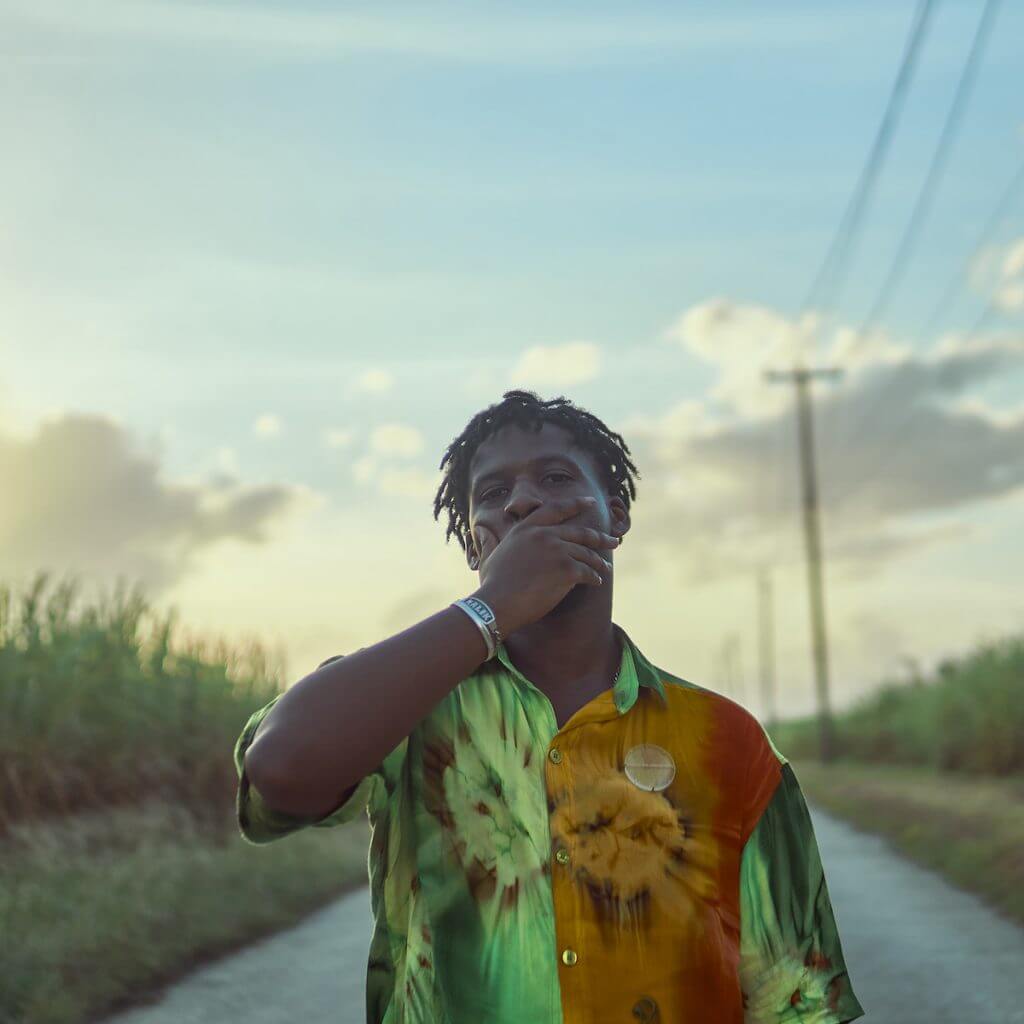
Your grandfather is the inspiration behind the album title. How has he inspired you?
My grandfather was a strong father figure. He really did a lot. I was raised by my grandparents in Barbados. When I came here, they were all I knew. He’d take me to school every morning, he taught me how to swim. If I ever got sick he’d ride me on his bicycle and take me to the doctor. He was always there for me, my grandmother and older sister.
There’s a lot of different things I learned from him. After he passed, I reflected and was like, “That’s something I want to adopt.” Lately I’ve been into family and the things that make up my world. Because you don’t realize these subtleties and how your ancestry affects the way you do things. This project is part of a trilogy of me examining myself, my world, and my growth as a man coming into my 23rd year. Seeing how everything is functioning, especially now, is a crucial time to think about how you spend your time and how things affect you subconsciously. All those things are how he inspired me and how I approached this project.
As a producer, what was it like working with Sega Bodega, known for producing electronic tracks?
We didn’t go super deep. Just worked a little bit on the intro and outro of the record. I played all the instrumentation on the end of the song. Sega is really just an alien who makes really interesting music. When we first got into the studio it was an instant, “Oh shit.” I was getting into that space with him, and I like that. I like working with people who come from different disciplines, know different things about music, or are part of music in a different way.
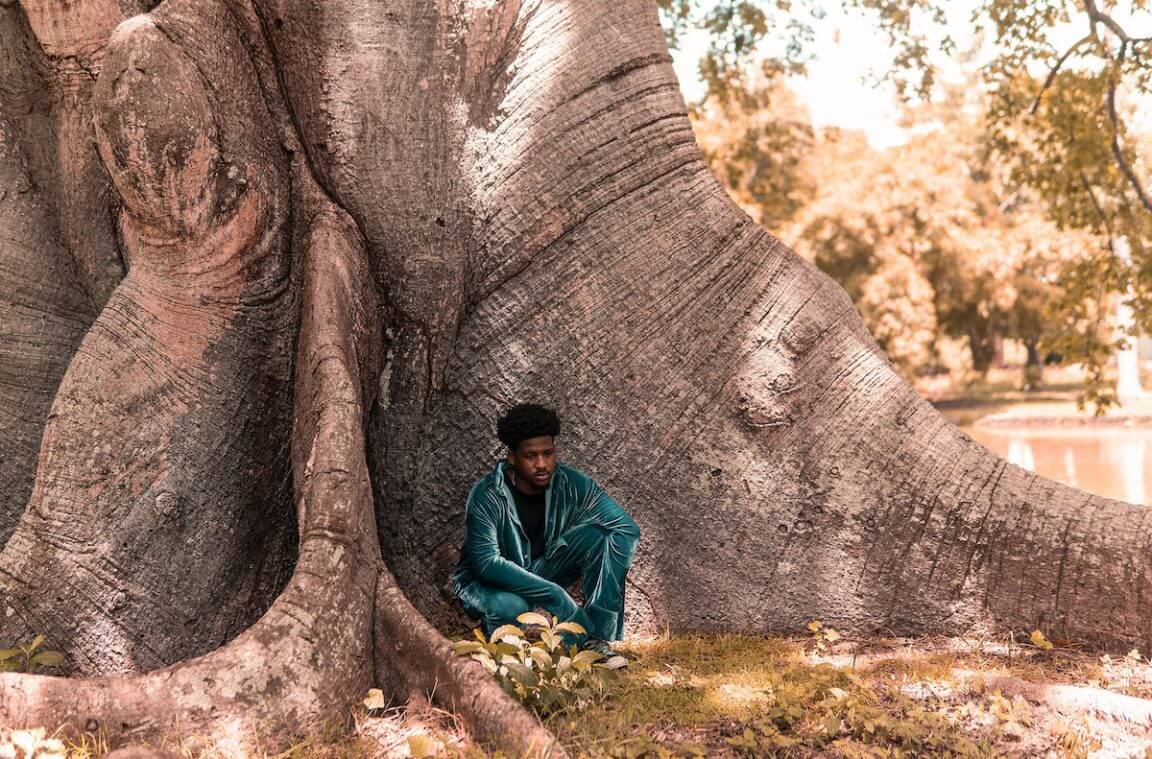
I feel like when people think of music from Barbados, they just think of Rihanna. What should people know about the music scene in Barbados?
It’s coming up. It’s bubbling, it’s bursting. There’s a lot of people getting hands on technology and experimenting with the songs. Jamaica has been very avid about their music culture. There’s a foundation for them to grow and permeate the streets with new styles of dance hall and genre bending based on their upbringing. I feel like Barbados is finally entering that stage where the kids are getting a hold of the computers and not just trying to replicate the things on the internet but get to the foundation and building blocks of what it is to make music.
We have a natural spirit for musicality. A lot of us are classically trained musicians. To add that to the new wave of production and sensibility of being able to arrange things, it adds another element to it. I feel like it’s the next step for us. It’s a new wave of genres and opening the world up to our accent and the whole ethos of what goes down here–because it’s very different.
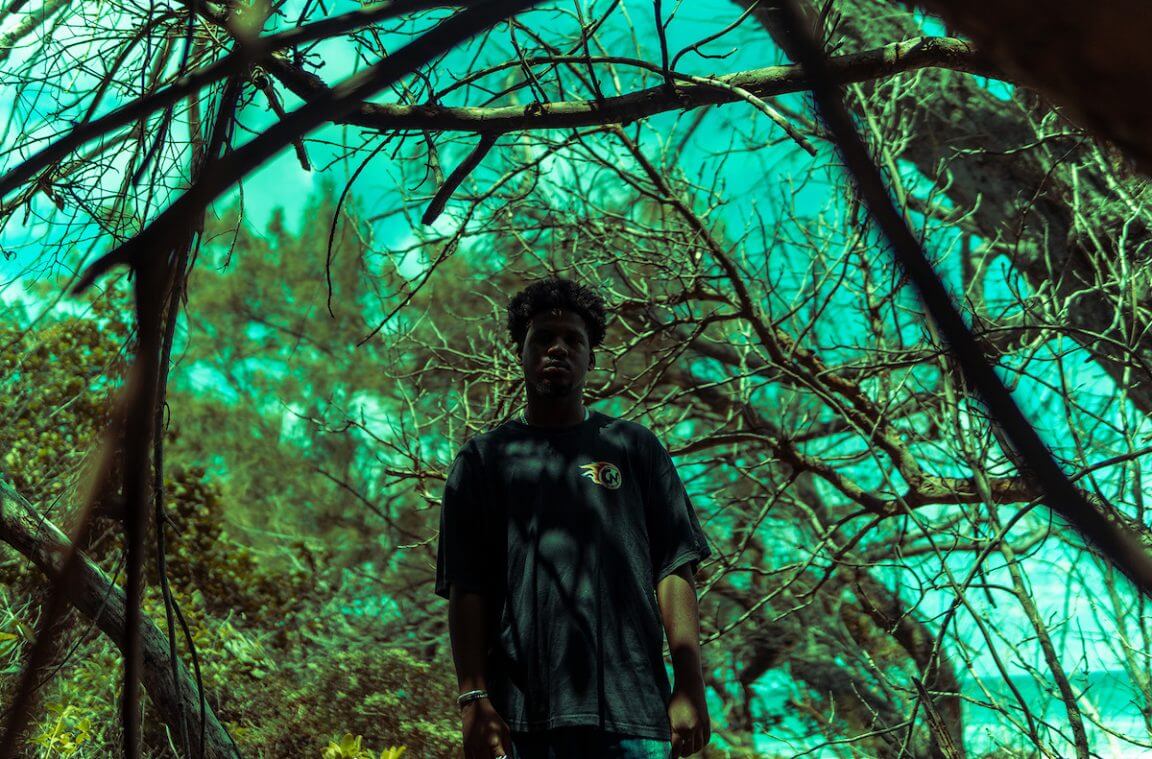
Though this is the first part of a trilogy documenting your growth, I’m curious to know how you’ve musically evolved since beginning your rap career as a teenager?
I started off in a really dark place. Like dabbling with drugs and pushing myself to a really weird place because of the trauma I had to work through personally. I always focus my music on trying to push people in the opposite direction. Basically trying to tell people, “I’m going through all this shit, I’m here for you, we can work through this.” My project is very much about me acknowledging the things that bother me and trouble the world while trying to make sense of all of that and put it in a story font.
I think now with this project I’m finally able to tell a story about my personal growth. Even with Errol, I didn’t get as personal as I wanted to. I’m getting deeper and chipping at it more and more so I can tell the stories the way I want. A lot of times I was focusing on giving people a general message but not doing an autobiographical thing as much. In between my first project and In Permanence it became more about my observations of the world. Now this is coming back to myself but in a less dark way. Just from a more sober place, both literally and figuratively. Looking at it from a grown-up stand point instead of being all sad about it. Just trying to grow and learn from things.
Many songs seem to have a message to self. In “DWGWY” you rap, “Strike it when it’s hot / you gone die when God wants you”. In “GET2HIGH” you rap, “Whatever you do / don’t get too high / you can’t come down”. Is it safe to say that this first part of the trilogy is a display of the past? Can we expect a present and future perspective in the next two trilogy portions?
Definitely, there’s a bit of the past and present there. Very reflective. It’s like catching up. You’re gonna see more of it. You know how artists do self-portraits and studies on themselves and their [own] anatomy? It’s kind of like that. I’m working through that and thinking about what I want to pull up and how I want to attach myself and see how I can apply the things I’m learning more and more. I’m trying to do it in a way that’s not narcissistic and to get other people’s perspective on myself too so I can incorporate that.
You sprinkled a few esoteric references throughout the album. Specifically in “Halo” you include biblical and Greek mythological references rapping, “They wanna send me to Jerusalem but them on some other shit / cash all on my Methuselah / shawty she serving Medusa looks”. How do you come up with these kinds of references?
The secondary school I went to is very much a bougie school. But it’s different to America where you can put your kids in a private school. You have SATs that you do when you’re 11, and it places you in the school you’re supposed to go [to]. I scored really high in primary school so they sent me to a school where a lot of rich people go and it’s the highest level of education that you can get in Barbados in a public school. Even outside of public schools, it’s one of the highest levels of education. A lot of my peers pushed me because I was always interested in literature. I was always at the library. So I really got into all the basic starter literature.
With that knowledge, I went to secondary school and there were a bunch of kids like me. Rich kids, and then kids who came from low income areas but pushed themselves to get to that place. They were well-read and interesting, eclectic people. Being around them, sharing references, gave me a foundation to pull references from wherever. I also was into anime that had more psychological shit with more esoteric references. Consuming that media and information over time has helped stockpile the references that I can pull from to portray the concepts I want in music.
These songs have thought-provoking lyrics, but I also really love that they have a trap vibe to them. If you could choose a track on the album to remix, which song would it be, and who would you like to drop a verse?
There’s a song called “Name” featuring Fantom Dundeal. To me it ends so abruptly. If there’s a song that I would like to get someone else’s interpretation, it’d be that song. Because Fantom is stereotypically a soca artist but comes at it from a ghetto gospel way so it’s very real. If I got someone like Meechy [Darko] from Flatbush Zombies or Freddie Gibbs or Denzel Curry, that’d be so crazy. There’s such an insane energy so I’d want someone who can contribute to that vibe. Freddie isn’t aggressive but I think he’d understand the vibe and speak trap to it from a real perspective.
What was the most time-consuming song?
“We Wid It” was [one] I took long to do, because it was the intro. Jah Koda really destroyed that song. I wanted to come with something different because I didn’t want to compete with him. It functioned so well as the intro. I definitely did that verse two or three times. I would also say “DWGWY” because I hand-wrote that. I was trying to make something with dense lyrics but [that] had an interesting hook. That took really long because there’s a lot of low vocal modulations. I count all those little things as part of the process. Even if I have the lyrics for a song, the way I pitch vocals and all that stuff, it still takes time for me to get it in the right pocket that sounds good in my ear.
What does this project mean to you?
This project is me trying to embody all the ways I feel I should be as somebody who puts things out to the world. I know a lot of people are like, “Whatever I put out there, I put out there–that’s just my art.” I feel that way too, but I also feel like I have to make sure my word is my word. So if I say I’m gonna do something, I have to make sure all my actions add up to that. My music and what I’m doing is going to live up to those promises. When my grandfather died, it was very suddenly. He lived a really awesome life but that was his time to go. When I was making this project, all those things were coming to my head: really seizing the moment, and being the biggest version of yourself that you can allow your mind to conceive.

